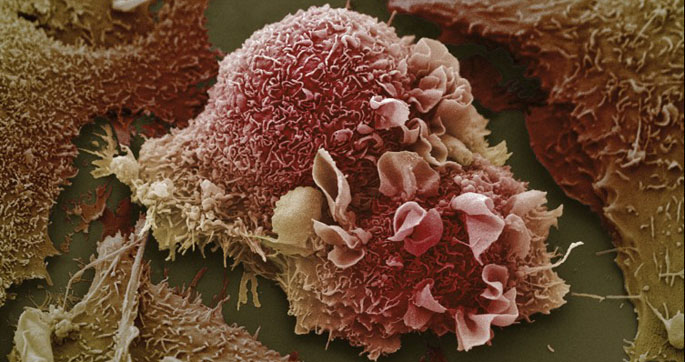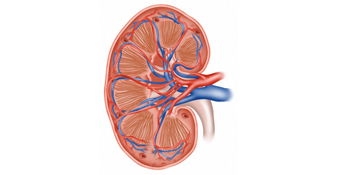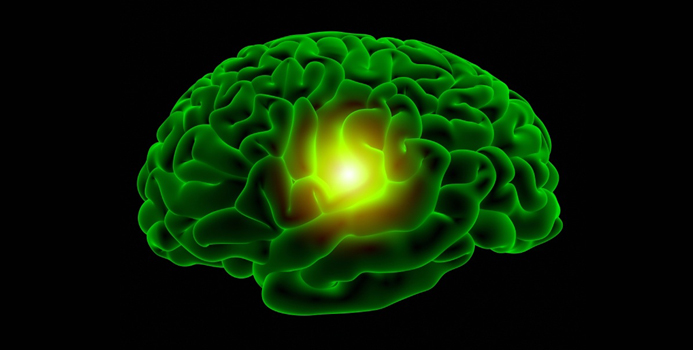Health And Medicine
-

VU leading international trial of new stroke therapy
Researchers at Vanderbilt University Medical Center are leading an international clinical trial to examine the functional benefits of a combined therapy to treat acute ischemic stroke. Read MoreJul 12, 2012
-

Vanderbilt’s CTSA lands $46 million renewal
Vanderbilt University’s largest single government research grant, its Clinical and Translational Science Award (CTSA), has been renewed for another five years for $46 million. Read MoreJul 12, 2012
-

New cancer drug shows promise in early testing
An experimental drug that activates T-cells and promotes an immune response to fight tumors has shown promising early results in patients with kidney cancer, melanoma and non-small cell lung cancer. Leora Horn, M.D. Vanderbilt-Ingram Cancer Center investigators Leora Horn, M.D., Jeffrey Sosman, M.D., and researchers from several other cancer… Read MoreJul 12, 2012
-

Gene’s impact on ‘good’ cholesterol could affect heart disease risk
A genetic variant may help keep an individual’s “good” cholesterol in check. Read MoreJul 12, 2012
-

Obesity linked to kidney problems after heart surgery
Obesity increases the risk of acute kidney injury following cardiac surgery, according to a Vanderbilt study published in the Journal of the American Society of Nephrology. Read MoreJul 3, 2012
-

Receptor’s role in nutrition brain circuitry
New findings point to brain circuitry that communicates about the body’s nutritional status and regulates how nutrients are mobilized. Read MoreJul 3, 2012
-

Report shows Vanderbilt achieving low rates of central line infections
Intensive care units at Vanderbilt University Hospital and the Monroe Carell Jr. Children’s Hospital at Vanderbilt are achieving exceptionally low rates of central line-associated blood stream infection (CLABSI), according to a report released this week by the Tennessee Department of Health. Read MoreJun 28, 2012
-

Low oxygen could protect sick kidneys
Low oxygen – and the activation of factors that respond to this situation – may be protective in chronic kidney disease. Read MoreJun 28, 2012
-

Spelling out HIV risk in urban China
Research reveals clues to HIV risk in Chinese men who have sex with other men. Read MoreJun 27, 2012
-

Grant bolsters VU autism training for Tennessee educators
A grant from the Tennessee Department of Education will allow the Vanderbilt Kennedy Center’s Treatment and Research Institute for Autism Spectrum Disorders to conduct statewide autism training for Tennessee's schools. Read MoreJun 25, 2012
-

Kids’ cells okay after mom’s cancer radiation
Study finds no evidence of increased mitochondrial mutations in the children of women treated with radiation for cancer. Read MoreJun 22, 2012
-

Gene database to aid disease research
A new catalog of human genetic data may help researchers uncover the genetic roots of disease and enable the ultimate realization of personalized medicine. Read MoreJun 19, 2012
-

Vanderbilt and affiliates receive $18.8 million HHS innovation award
The Health Care Innovation Award from the Centers for Medicare and Medicaid Services (CMS) is one of the largest federal research grants awarded to VUMC investigators. The funding will support the implementation and evaluation of MyHealthTeam, a model of team-based care that couples collaborative health care teams with health information technology in order to improve control of chronic conditions. Read MoreJun 18, 2012
-

Family members can often sabotage diabetes care: study
Nonsupportive family members contribute to poor adherence to medication regimens and lower glycemic control in adults with diabetes. Read MoreJun 15, 2012
-

Roots of childhood brain tumors
Cells in the back of the developing brain can give rise to brain tumors, suggesting they may be a target for treatment. Read MoreJun 14, 2012
-

Mixed results define 2012 Tennessee Men’s Health Report Card
Heart disease is still the leading cause of death for men in Tennessee and cancer deaths continue to move further away from the Centers for Disease Control and Prevention’s Healthy People 2020 goal, according to the 2012 Tennessee Men’s Health Report Card. Read MoreJun 12, 2012
-

Making order out of ordinal data
A new statistical tool developed by Vanderbilt biostatisticians will help medical researchers make sense of a commonly encountered – but hard-to-analyze – type of data. Read MoreJun 12, 2012
-

Vanderbilt identifies genes linked to breast cancer chemo resistance
A study led by Vanderbilt-Ingram Cancer Center investigators has identified a gene expression pattern that may explain why chemotherapy prior to surgery isn’t effective against some tumors and suggests new therapy options for patients with specific subtypes of breast cancer. Read MoreJun 11, 2012
-

Common genetic signals for atrial fibrillation decoded
An international study co-led by researchers at Vanderbilt University has uncovered six new “susceptibility loci,” chromosomal regions located in or near genes that may play a role in atrial fibrillation, the most commonly diagnosed heart condition. Read MoreJun 8, 2012
-

Study sees eligibility confusion ahead for Affordable Care Act applicants
A Vanderbilt expert on health policy and economics says that many people who get subsidized private health insurance under the Affordable Care Act in 2014 could face confusing changes in eligibility and cost sharing, and some will be required to pay the government back after the first year of participation. Read MoreJun 8, 2012